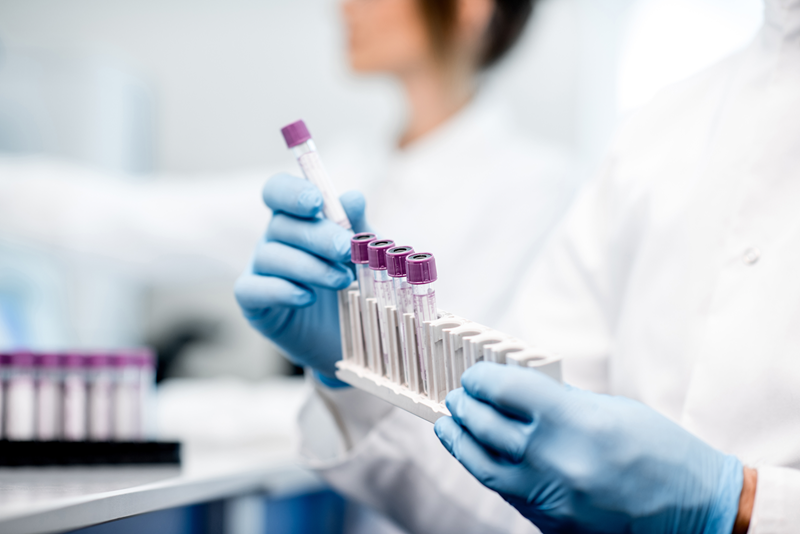A new study has found that a multicancer blood test, which was conducted on more than 9,900 women with no cancer history, safely detected 26 undiagnosed cancers.
Overall, 26 undiagnosed cancers were detected by the test, while an additional 24 cancers were detected through screening such as colonoscopy or mammogram.
Researchers at the Ludwig Center at the Johns Hopkins Kimmel Cancer Center found that cancers detected by the blood test were localized by diagnostic PET-CT scan and 12 of them were able to be surgically removed.
They developed the blood test called DETECT-A (Detecting cancers Earlier Through Elective mutation-based blood Collection and Testing), which represents the first liquid biopsy blood test used clinically for cancer screening in people with no previous history of cancer, enabling potentially curative treatment.
Lead study author Dr. Anne Marie Lennon said, “This study suggests that a multicancer blood test can be complementary and additive to the standard of care screening and maybe a good strategy for increasing early detection of cancer.”
The researchers explained that the test detects the presence of cancer gene mutations in circulating DNA. It also detects the presence of specific cancer proteins in the blood.
“The DETECT-A study incorporated PET-CT imaging to provide independent confirmation of the existence of a cancer and to precisely localize its site,” said Dr. Nickolas Papadopoulos, senior study author.
“For example, we could detect a lung cancer, tell in which lobe of which lung the cancer was located, the size of the cancer and if there were metastatic lesions present,” he added, “Blood tests alone are not able to provide this type of precise information.”
The multicancer blood test followed by a PET-CT scan was 99.6 percent specific for cancer.
Prof. Kenneth Kinzler of the Ludwig Center at Johns Hopkins said, “Our primary goal was to demonstrate reliability and safety — to show the blood test could lead to the diagnosis of cancers and get patients to treatment aimed at curing them.”
And the secondary goal was to show that the test could be used as a conventional screening method for detecting lung, breast, and colon cancers. Dr. Papadopoulos said it the study found some encouraging results for these three cancer types.
The blood test also allowed the detection of seven other types of cancers – lymphoma, appendix, uterine, thyroid, kidney, ovary, and cancers arising from an unknown primary site.
The researchers said additional studies that reflect an optimized version of the multicancer blood test are in planning.
“We believe that more than two-thirds of cancers that occur in the U.S. can eventually be screen-detected, either by blood testing or standard screening, before they cause symptoms of disease,” said Dr. Bert Vogelstein of Johns Hopkins. “Such earlier detection has the capacity to substantially reduce suffering and death from many cancer types.” However, the blood test is still undergoing research and is currently unavailable to people.





















